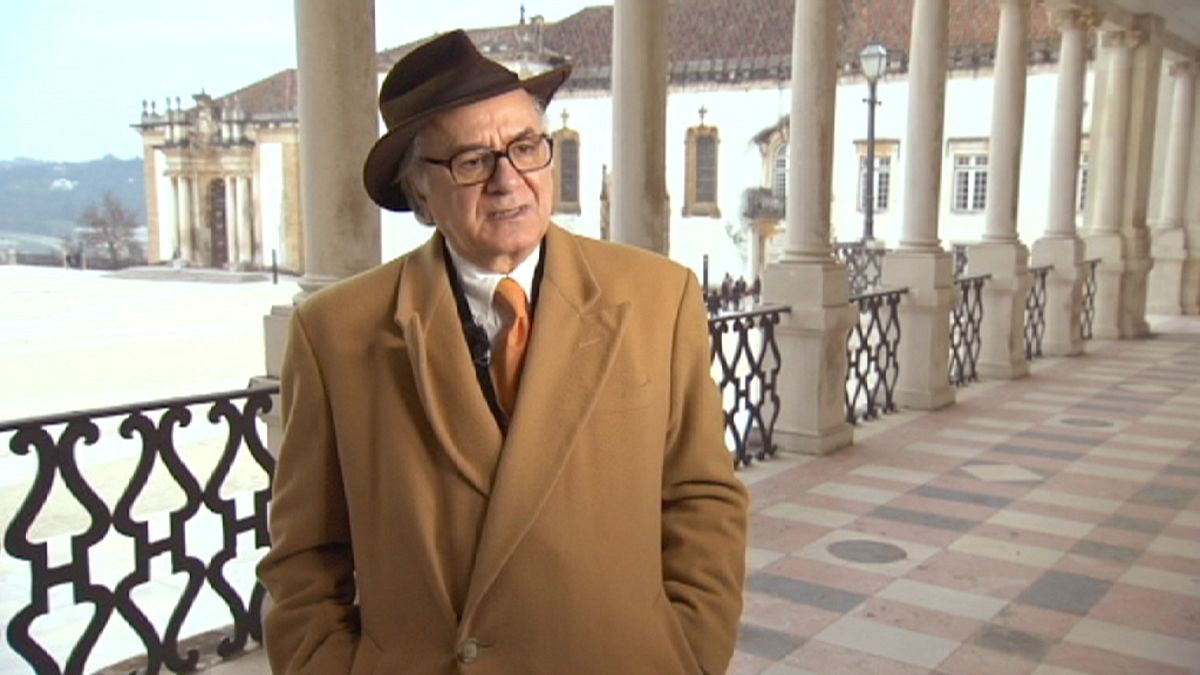On the question of how to close the distance between the EU and its citizens, and to get them to fully use their European rights, Euronews spoke to prominent Portuguese author and sociology professor Boaventura de Sousa Santos. He calls for radical change at the heart of the European project, but also a new way of thinking in terms of education and where European officials seek their advice. Right On reporter Seamus Kearney caught up with him at the University of Coimbra, where he is Director of the Centre for Social Studies. He had this to say:
“I think it is very important to bring European citizens closer to the European Union, and there are two important things to work out. On the one hand, European values should be part of the education curriculum in schools. The education systems in Europe are still very much based on national realities and they should be based on European realities. The European reality is not so strong at the moment, and part of this problem links back to education. It will take many generations to sort out, but I think this work should be intensified.
“The other issue, naturally, is the question of democracy. The citizen will only feel closer to the EU when they feel that it is theirs, a thing that belongs to them. In the context in which we live there is only one way to make them feel that they contribute democratically, and that is to elect the people who govern the various institutions, and naturally that their votes influence EU decisions.
“Right now we have what we call a European deficit, a deficit of democracy. There is democracy at the level of the various European states, but not when it comes to Europe. The European Parliament does not have the powers that it should have, and the executive agency, as in the European Commission, is not elected by citizens.”
“So if we want to bring the EU to the citizens we need to transform the education systems inside Europe, and we need to change the European political system: create a strong European democracy and intensify the democratic forms, both on a trans-national and trans-European level. To feel more European, the citizens have to see an advantage in being European; an advantage and not a cost. They must feel that being European is something that makes them proud and gives them an advantage, because they belong to a huge political, democratic and social bloc.
“The crisis that Europe is experiencing right now, especially in southern Europe, is dividing Europeans: it is creating a separation between the Europeans who do not have a financial crisis and the Europeans who do have a crisis. It does not help the continent in terms of having a social plan, nor in terms of getting people to feel closer to Europe.
“Europe should also intensify the circulation of people around the countries. I’m not talking about the borders that we took down, but we need more initiatives for this, and not just the Erasmus programme for students. The citizens in general should circulate more and more around Europe, to better understand the different realities in the different countries. This is important, especially to eliminate some prejudices that still exist between some countries; for example, between the Germans and the Greeks, the Portuguese and the Spanish, the French and the Belgians, and the Italians. There is still much prejudice that dates back to the times of war between European countries, a period before the creation of an EU model.
“I’m not optimistic. At this time of instability – and we are not swimming in calm waters – it is crucial to have innovative, creative and visionary leaders. And our leaders, unfortunately, are not like that.
“I would urge all leaders to be more cosmopolitan, more humble and forget the idea that Europe is a very developed bloc that has nothing to learn from the rest of the world, because that is not true. We saw countries in Africa, Asia and South America go through huge difficulties, more or less similar to those in southern Europe, and they found solutions. That’s good to know, and we should be more cosmopolitan, and not think that we have all the solutions, because the world is so big. And the global understanding of the world is much broader than the Western understanding of the world.”
“Nowadays I work in India, South America, Africa and Asia, and there are many ideas in the world about how we should sort out our problems. The European leaders could get to know these ideas and experiences instead of being in a defensive position and thinking: ‘we discovered you, and in the last century you were a European colony, and we have nothing to learn from you’.”
“They should be humble, learn and improve from the world experience. This is the main advice I would give them, but unfortunately our leaders were trained for routines, for the global supremacy of the north. They can’t imagine that in a difficult situation they can learn from the world experience. This is a generational issue, and the leaders will one day change; fortunately we have democracy. They will be replaced, and I think the new generation will be more cosmopolitan and will want to learn from others.”
